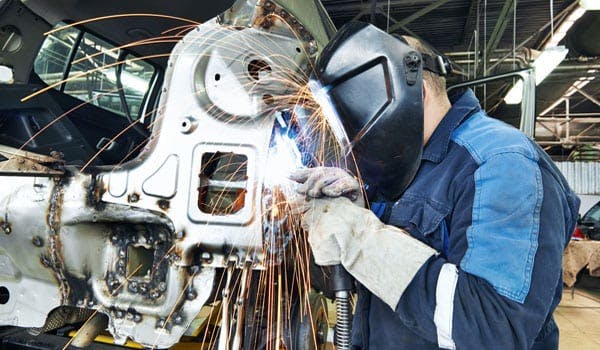Despite the economic crunch facing the nation’s domestic manufacturers, a number of operators have managed to survive and flourish in tough conditions.
While the manufacturing sector remains under pressure, why have some been able to stick it out and prosper while others have fallen over?
The Byron Group is an example of one Australian based auto-manufacturer that has grown and which is now concentrating heavily on expanding its export market in the Middle East. Chief executive Bill Pike says those labouring in the domestic manufacturing sector under the weight of the high dollar need to harness their creative energies to survive.
“You need to be desperate. You need to be resilient. You need to be driving business every day. Any company in manufacturing that is comfortable is destined for the scrap heap,” he tells Dynamic Business.
The secret to the group’s success is its specialisation. The company produces emergency response vehicles for state ambulance services and has made a conscious decision over the last 12 months to move into prison inmate transfer vehicles. With an annual turnover of more than $320 million, it also manufactures aircraft furnishings, inflight equipment for the military, rescue and retrieval platforms, stretchers and spinal boards.
“The emergency response sector is quite small, quite limited and almost entirely controlled by government expenditure,” Mr Pike says.
“We have to find new markets and we have to add new products. We are in acquisition mode. We are looking for companies to add into our portfolio that will add value to the overall group as we as develop a range of new commercial products that help us to diversify.”
He says that Byron Group has survived without receiving “one cent” of government assistance and is critical of the subsidies received by the major automotive manufacturers with Holden, Ford and Toyota still announcing the closure of their Australian plants.
“They shouldn’t have got the amount of assistance they got. I don’t understand why the taxpayer had to pay for the inefficiencies and the management decisions of these foreign nationals,” he says.
Murray River Organics is another example of a business that has a thriving export market. A dried fruit processor located in Mourquong in NSW drawing on 1,700 acres of organic farmland, the company recently had a new facility commissioned creating over 40 local jobs.
Co-owner Erling Sorensen said that there was a “great desire” for high quality organic fruit and that 95 per cent of his produce was exported overseas. His major competitors are dried fruit processors in California and Turkey. While the high dollar made it difficult to compete on price with his international competitors, Mr Sorensen said the quality of his product helped to distinguish it from his rivals.
Despite the growth experiences by both businesses, manufacturing continues to remain under pressure. According to the Australian Industry Group’s Performance of Manufacturing Index, there was a sharp fall in manufacturing activity in April with the index delivering its lowest reading since July 2013. It showed manufacturing production fell 6.6 points, while new orders dropped 10.5 per cent.

